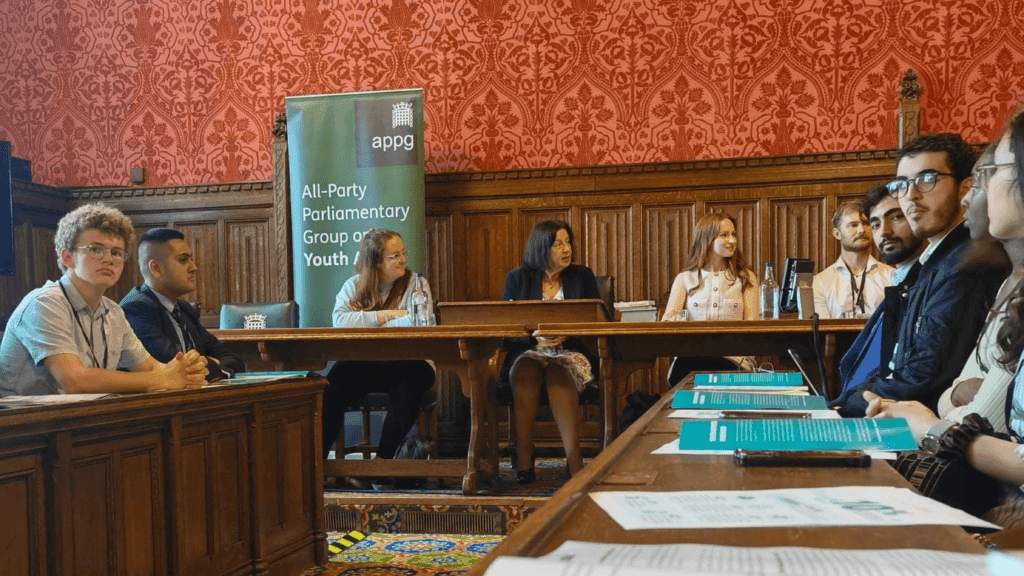
Our response to the APPG report on Youth Affairs
By Funbi Akande, Policy Officer
Four key takeaways from the new report
Speakers for Schools is committed to showing young people what the future of work looks like, and the skills needed to thrive in rapidly evolving workplaces. So, we are glad to see the APPG on Youth Affairs publish the report of its inquiry on skills and youth employment.
We know that tackling poverty and promoting social mobility requires policies cutting across various areas, including work experience, mental health support, careers education, extracurricular activities, and youth services. So, we consulted young people around the country to ensure that their voices are at the heart of our understanding of barriers to social mobility. We are pleased that our evidence was reflected in the inquiry’s findings, vindicating our research and the lived experiences of young people who told us of their struggles in progressing into the world of work.
1. Need for a long-term National Skills Strategy
It is great to see that the report recognises the £30 billion annual cost of labour shortages if the UK fails to tackle the skills gap. We support the call for a new joined-up skills strategy that will ensure ministerial and cross-departmental accountability and reduce silo-working. It must recognise the importance of place and use best practices from the UK and abroad to have the greatest impact.
2. Removing the barriers to good career outcomes
Research by Sutton Trust shows that 1 in 4 working-class students did not participate in Career Education Information Advice and Guidance (CEIAG) activities, including open days, work experience placements and employer talks1.
Young people from marginalised backgrounds without family networks in business face multiple barriers to accessing career information.
70% of young people who attended work experience via our portal told us the primary benefit was in raising awareness of the different career routes into their chosen industry2.
Attending work experience reduces the chance of becoming Not in Education, Employment, or Training (NEET) from 11 to 7%*, yet two-thirds of 16 to 18 years olds can’t recall doing any work experience at school3. For this reason, we applaud the inquiry for echoing our Work Experience for All campaign call for a statutory duty to ensure all young people should be given work experience during secondary education (including further education and academy schools) and relevant career advice.
3. Transferable skills
We agree that all young people should be given multiple opportunities to develop transferrable skills to adapt to the future world of work.
Furthermore, our National Teen Book Club exemplifies the positive influence that reading for pleasure [alongside peers and teachers] can have on confident communication. We welcome the call for investment in programmes that provide extracurricular activities to support young people’s development. Initiatives like our book club can strengthen the bonds between educators and supporting partners such as Speakers for Schools.
4. Gen -Z to Gen-Green
Rapid technological advances, including AI, will significantly impact the generation that is currently in education.
The UK’s Net Zero commitments will also require a significant shift in skills needed in the future. Competitors like the USA introduced a $370bn green subsidy package this year to boost its Green Economy4. We also need to ensure that young people in the UK are career-ready and not left behind in the global race for Digital and Green jobs.
We are incredibly proud of our employers and speakers who offer work experience placements and deliver inspirational sessions focused on Green Skills. They help young people to understand how businesses can sustain our environment and demystify the economic and ecological value of green jobs.
The report rightly argues that a public campaign focused on technical education routes into net-zero apprenticeships, future green jobs, and the importance of STEM skills will help young people learn about the skills required in the workforce of the future.
What’s Next?
We are pleased that the report recognises the need to firm up the Gatsby Benchmarks and the critical role that the provision of meaningful work experience plays in the career outcomes of young people.
We would like to see a long-term strategy that addresses the skills and careers education gap for state school students. This strategy should outline the central Government’s responsibilities and the role that local authorities, employers, educators and partners such as Speakers for Schools will play in meeting the skills needs of all young people, no matter their background or location.
Social mobility can only be achieved if access to inspiration and experience is open to everyone, regardless of where they live or who their parents know.
Please find out more about our recent campaign to make work experience accessible for all here.
References
1 https://www.suttontrust.com/our-research/paving-the-way/
2 Speakers for Schools post placement survey
3 https://www.speakersforschools.org/wp-content/uploads/2022/11/SP-2074_SFS-Work-Experience-For-All-YouGov-Report_v1.pdf
4 https://www.thechemicalengineer.com/news/us-climate-deal-signed-into-law/